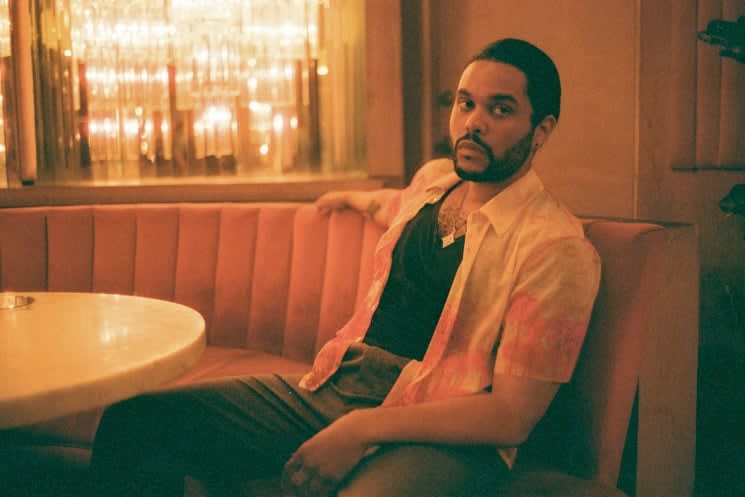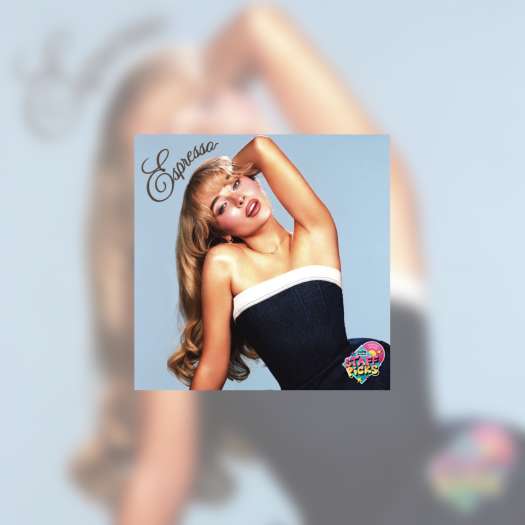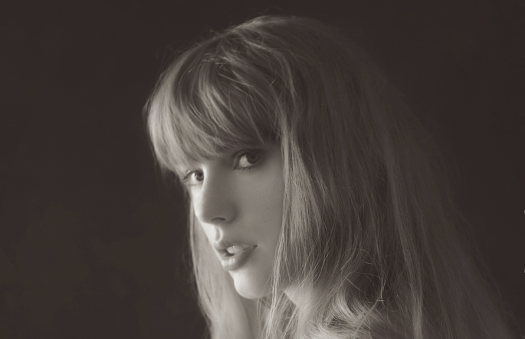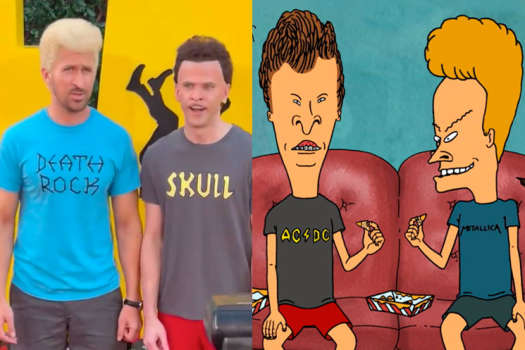Abel "the Weeknd" Tesfaye is arguably the biggest pop star on the planet, but his first foray into TV isn't going well. After a shallow first episode, The Idol became a laughing stock with its second episode and its cringe-inducing sex scene, in which the Weeknd's character tells Lily-Rose Depp's to "fuckin' stretch that tiny little pussy." Yuck!
In an extremely defensive interview, the Weeknd asserted that the scene was supposed to be gross and embarrassing, and emphasized that he, Tesfaye, is not the same person as his character (a creepy nightclub impresario and cult leader named Tedros). Tesfaye told GQ, "There's nothing really mysterious or hypnotizing about him. And we did that on purpose with his look, his outfits, his hair — the guy's a douchebag."
Tesfaye is telling us that he's not the same person as Tedros and that he's self-aware about the character's flaws. But the snag is, fans don't really know who the Weeknd is, because he's never told us.
For close to a decade and a half, Tesfaye has conducted his career in near-anonymity, rarely granting interviews and often obscuring his face with shadows, bandages or grotesque plastic surgery prosthetics. Although he's become slightly less reclusive over time — doing a Super Bowl press conference was a high-profile glimpse behind the curtain — he's not the sort of celebrity who does talk show interviews or GQ's "10 Things I Can't Live Without" videos. I've listened to all of his albums extensively, but I barely know the first thing about his personal life, beyond the bare bones of his dating history. Interviews with him are so rare that journalists actually get interviewed about interviewing him, and watching The Idol is by far the most time I've spent actually looking at his face with proper lighting.
Furthering the problem is the sense that the Weeknd we see on screen in The Idol is actually pretty similar to the one we hear on his albums. Tedros is creepy about sex, glamorizes the seedy side of drugs and partying, and generally comes off as a sleazeball — all characteristics of the Weeknd's lyrics. Case in point: "Take My Breath," the lead single off his most recent album, is about asphyxiating someone during sex. His debut mixtape, 2010's House of Balloons, made many listeners uncomfortable with its depiction of sex and drug use — but he also reinvented the sound of modern R&B in the process.
The main difference is that the Weeknd's icky lyrics are delivered with an angelic vibrato, spookily beautiful synths and catchy beats. On The Idol, the same sentiments are delivered with stiff acting and wooden facial expressions. It's much harder to ignore how icky and uncomfortable the whole thing is.
Making matters even worse are reports about The Idol's on-set environment — with its rewrites and reshoots, allegations of "torture porn," and the admission that "The initial approach on the show and production of the early episodes, unfortunately, did not meet HBO standards." Lily-Rose Depp has even said that she would avoid the Weeknd on set, because he would get "in his zone" with his character.
Yes, Tedros is a character — a total scumbag who seems to be shaping up to be the villain of The Idol. There's nothing unusual about that. But what is unique is that he's being portrayed by a pop persona called the Weeknd, who is also a character, and it's not clear where ironic self-awareness ends and embarrassing obliviousness begins.
As for who the real Abel Tesfaye is, I'm still not sure — although, if he follows through with his plans to kill his pop persona, maybe we'll find out eventually.
In an extremely defensive interview, the Weeknd asserted that the scene was supposed to be gross and embarrassing, and emphasized that he, Tesfaye, is not the same person as his character (a creepy nightclub impresario and cult leader named Tedros). Tesfaye told GQ, "There's nothing really mysterious or hypnotizing about him. And we did that on purpose with his look, his outfits, his hair — the guy's a douchebag."
Tesfaye is telling us that he's not the same person as Tedros and that he's self-aware about the character's flaws. But the snag is, fans don't really know who the Weeknd is, because he's never told us.
For close to a decade and a half, Tesfaye has conducted his career in near-anonymity, rarely granting interviews and often obscuring his face with shadows, bandages or grotesque plastic surgery prosthetics. Although he's become slightly less reclusive over time — doing a Super Bowl press conference was a high-profile glimpse behind the curtain — he's not the sort of celebrity who does talk show interviews or GQ's "10 Things I Can't Live Without" videos. I've listened to all of his albums extensively, but I barely know the first thing about his personal life, beyond the bare bones of his dating history. Interviews with him are so rare that journalists actually get interviewed about interviewing him, and watching The Idol is by far the most time I've spent actually looking at his face with proper lighting.
Furthering the problem is the sense that the Weeknd we see on screen in The Idol is actually pretty similar to the one we hear on his albums. Tedros is creepy about sex, glamorizes the seedy side of drugs and partying, and generally comes off as a sleazeball — all characteristics of the Weeknd's lyrics. Case in point: "Take My Breath," the lead single off his most recent album, is about asphyxiating someone during sex. His debut mixtape, 2010's House of Balloons, made many listeners uncomfortable with its depiction of sex and drug use — but he also reinvented the sound of modern R&B in the process.
The main difference is that the Weeknd's icky lyrics are delivered with an angelic vibrato, spookily beautiful synths and catchy beats. On The Idol, the same sentiments are delivered with stiff acting and wooden facial expressions. It's much harder to ignore how icky and uncomfortable the whole thing is.
Making matters even worse are reports about The Idol's on-set environment — with its rewrites and reshoots, allegations of "torture porn," and the admission that "The initial approach on the show and production of the early episodes, unfortunately, did not meet HBO standards." Lily-Rose Depp has even said that she would avoid the Weeknd on set, because he would get "in his zone" with his character.
Yes, Tedros is a character — a total scumbag who seems to be shaping up to be the villain of The Idol. There's nothing unusual about that. But what is unique is that he's being portrayed by a pop persona called the Weeknd, who is also a character, and it's not clear where ironic self-awareness ends and embarrassing obliviousness begins.
As for who the real Abel Tesfaye is, I'm still not sure — although, if he follows through with his plans to kill his pop persona, maybe we'll find out eventually.




